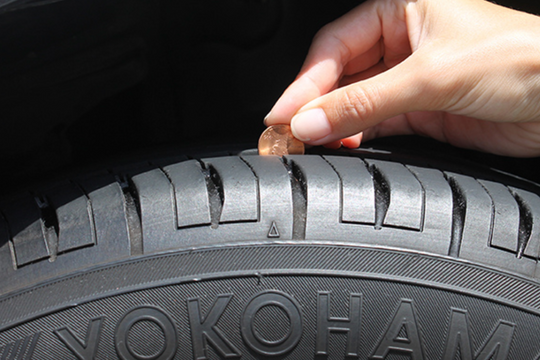'Refrigerator' that doesn't need to be plugged in keeps food 9 times fresher than normal
Preserving fresh food for up to 27 days, modern but not "harmful to electricity", those are the wonderful benefits that the special "refrigerator" invented by a Nigerian teacher brings to the lives of poor people here.
Simple but incredibly effective inventions that don’t cost too much are what poor people in rural Africa always “dream” of. Even in modern life today, basic electrical appliances like refrigerators have become an extremely “luxury” for people here due to the remote terrain and the high cost of electricity.
Luck has come to poor Nigerians when a special cooling device that can preserve food as well as a refrigerator was invented by Mr. Mohammed Bah Abba, a Nigerian teacher.
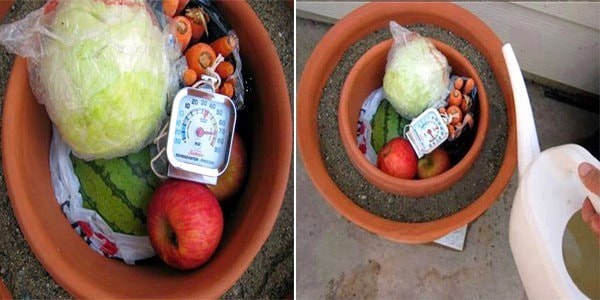 |
| Special cooling tools have the effect of preserving food no less than refrigerators. |
This “one of a kind” refrigerator does not need to be plugged in, does not cost much, can even be “portable”, and is especially effective in hot, dry weather conditions that can easily cause fruits, vegetables and other foods to quickly spoil and spoil, preserving food for up to nearly a month.
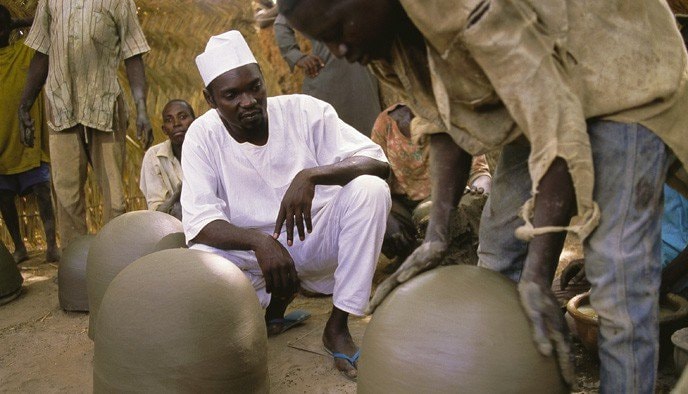 |
| Mr. Mohammed Bah Abba, inventor of a special refrigeration system that changes the lives of poor Nigerians. |
Mohammed Bah Abba was born into a family with a tradition of pottery and clay making. As a son of Nigeria, understanding the consequences of the harsh weather and the burning sun in Africa, as well as the wishes of the poor, in the late 90s, Mr. Mohammed created a special “refrigerator” using traditional pottery technology.
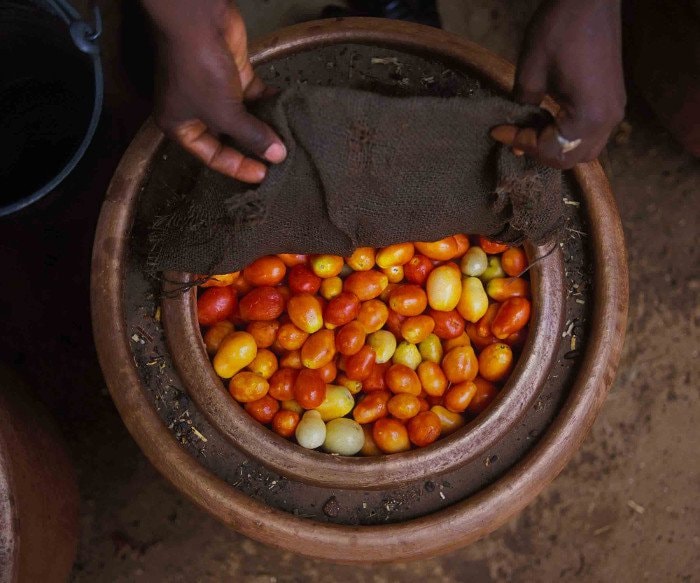 |
| This "refrigerator" does not need to be plugged in and can preserve food 9 times longer than normal conditions. |
Based on the ancient idea of a ceramic jar to keep water cold, Mr. Mohammed created a special “refrigerator” with a “jar in a jar” mechanism. Two large and small ceramic jars are nested inside each other, the large jar or the space between the two jars will be filled with wet sand, and the small ceramic jar will be used to store food and covered with a wet cloth.
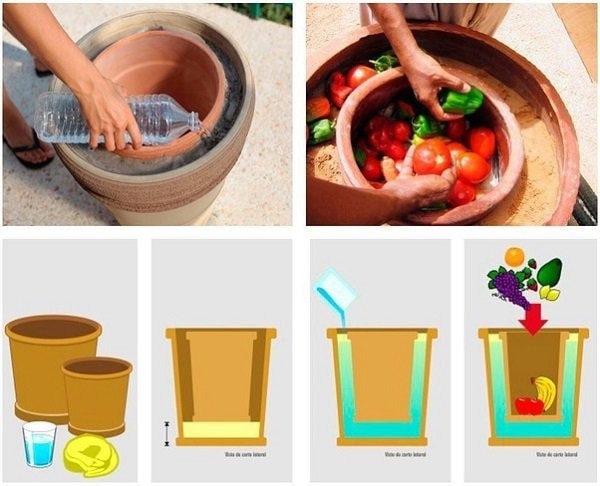 |
| The structure of the "refrigerator" consists of two large and small ceramic jars nested together. The space between the two jars will be filled with wet sand, and the small ceramic jar will be used to store food and covered with a wet cloth. |
For the two pots to function effectively as a refrigerator, they need to be placed in a cool, dry place. When the water in the sand that was poured in at the beginning evaporates, the inner pot is cooled to only 4 degrees Celsius, preventing bacteria from growing and keeping the food fresh.
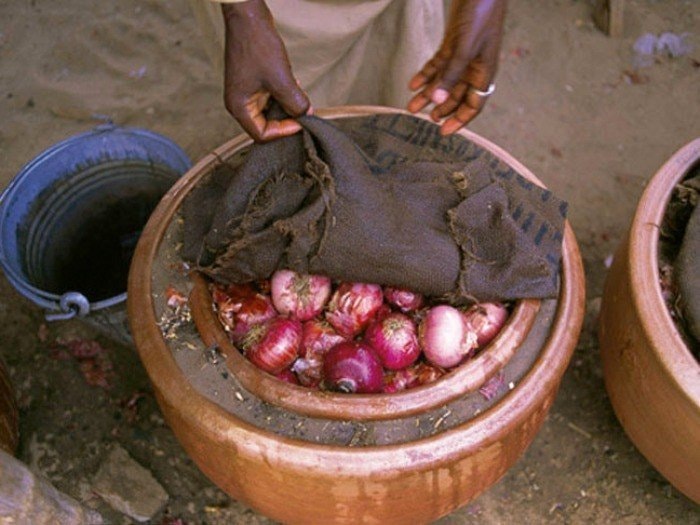 |
| The water in the wet sand will evaporate, the inner pot will be cooled to only 4 degrees Celsius, preventing bacteria from growing and keeping food fresh. |
It can be said that this special “refrigerator” of Mr. Mohammed is a proof of the invention “modern but does not harm electricity” with a surprisingly cheap price. Only need to spend 20 to 90 thousand VND (from 2 to 4 dollars) for each one, does not use electricity and can preserve food from meat, fish, vegetables, to fruits for up to 27 days, 9 times longer than 3 days at normal temperature.
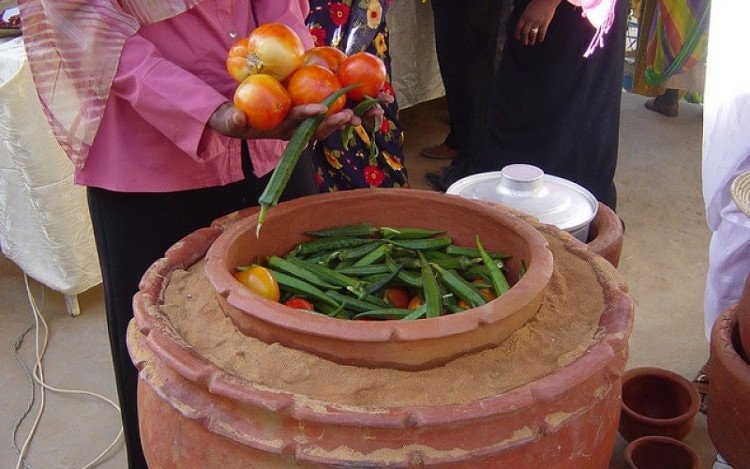 |
| It can be said that Mr. Mohammed's special "refrigerator" helps people store food for up to 27 days. |
This effective “bottle in a bottle” system has really changed the lives of poor Nigerians, the ability to preserve food for a longer time and keep it fresh longer helps them sell their agricultural products at a higher price. Since having these bottles, people here will no longer need to go to the market every day to buy food, extremely convenient and also save a lot of time.
Before his death in 2010, Mr. Abba continued to improve the cold storage system, then he used his own money to hire local factories to mass produce 5,000 “refrigerators” to distribute to 5 villages in Jigawa and 7,000 “refrigerators” to local Nigerians.
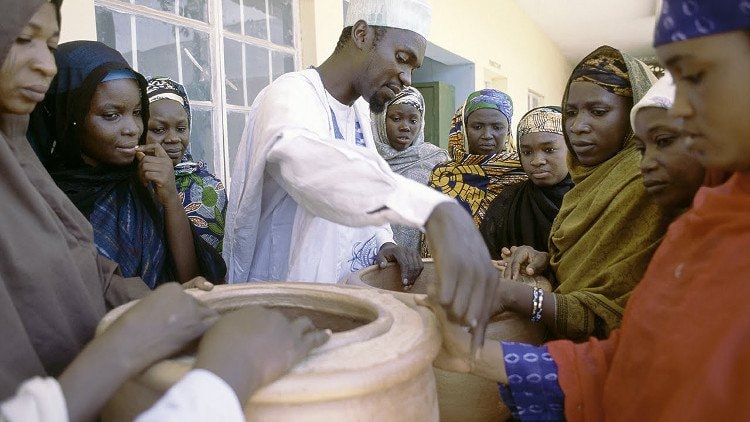 |
| The refrigerators created by this Nigerian teacher have significantly improved the lives of people here. |
These “super-efficient” refrigerators are now widely used in rural areas of Nigeria, Cameroon, Chad, Eritrea, and Sudan. In 2000, Mohammed Bah Abba was awarded the Rolex Award for Enterprise, which honors outstanding inventions. Time magazine once named Mohammed’s groundbreaking cooler invention one of the great inventions of the year.
According to Khampha.vn
| RELATED NEWS |
|---|






